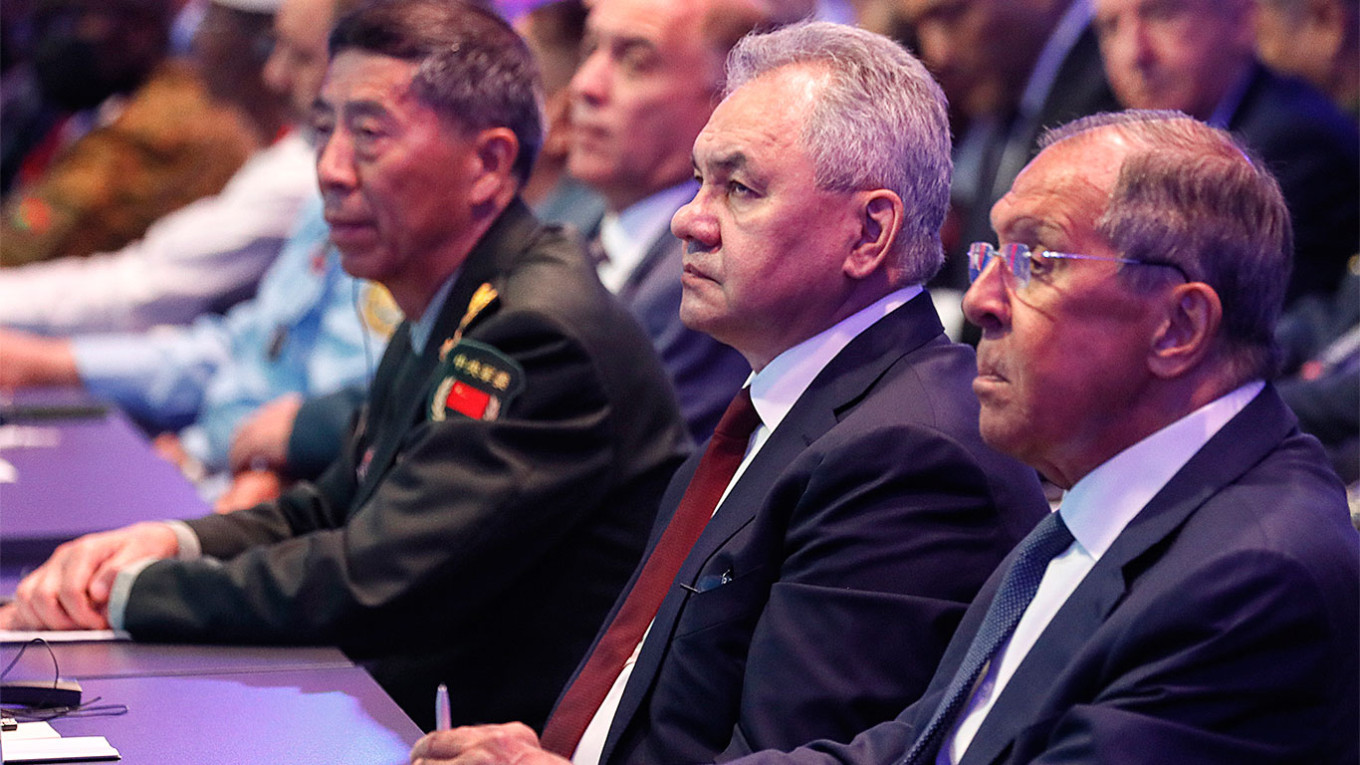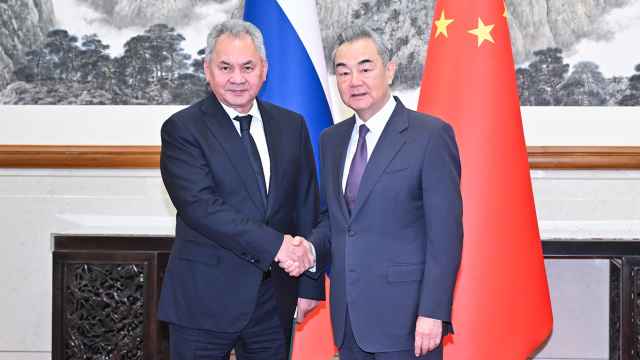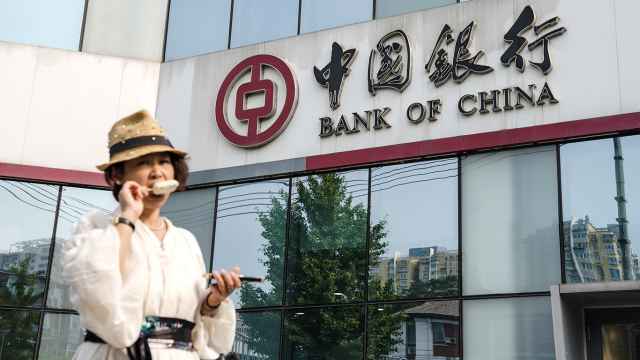The 11th Moscow Conference on International Security brought together leading figures of the Russian security apparatus with the defense ministers of Moscow’s non-Western partners, and an increasingly scarce array of international allies.
After discussing the emerging multipolar world order, the conference agenda pivoted to in-depth examinations of events in the Middle East, Africa, and the Asia-Pacific region. Russian officials decried what it sees as the West’s role in destabilizing the international order through unilateral wars, unjust sanctions, and the creation of hostile blocs.
For seasoned watchers of Russia’s foreign and security policy, these narratives cover familiar ground. But they also encapsulated Russia’s campaign to blame the West for instigating the Ukraine war as well as its efforts to align with China against the threat of U.S. unilateralism in the Asia-Pacific region and pander to popular narratives about Western misconduct in the Middle East and North Africa.
During his subdued video address, President Vladimir Putin repeated his long-standing claim that the Ukraine war was triggered and perpetuated by Western recklessness. He justified this dubious argument by claiming that the West pumped billions of dollars into Ukraine’s “neo-Nazi regime” and continued to escalate the conflict with arms supplies and the deployment of military advisers and mercenaries.
Russian Foreign Minister Sergei Lavrov, who was in attendance at the conference, elaborated further by claiming that the West approved of Ukraine’s crackdown on the Russian language and of its alleged pre-war plans to seize the Donbas by force. He also took a pointed jab at Zelensky’s conditions for peace, equating the restoration of Ukraine’s 1991 borders with “destroying everything Russian in the territories that are currently beyond its control.” In stark contrast to the West’s support of Ukraine’s defensive efforts, Lavrov praised the mediation attempts by China, Brazil, and South Africa, which have instead focused on freezing the war via a ceasefire agreement.
Russia’s revisionist narratives about the conflict are underpinned by two rationales. First, Russia wants to strengthen its ideological bonds with China over the Ukraine war. Russia’s rhetoric on how the West obstructed peace in Ukraine likely resonated strongly with Chinese attendees; after the May 2023 G7 Summit in Hiroshima, China’s People’s Daily published an article stating that the U.S. was using the Ukraine “crisis” as a tool to grab huge profits, and accused Washington of sabotaging peace talks. The Chinese Foreign Ministry has repeatedly argued that U.S. arms supplies to Ukraine are incompatible with peace and claimed that a pledge for Ukraine to not join NATO could end the war.
But Lavrov’s praise of China’s peace plan — which contrasted with his unwillingness to discuss it with Foreign Minister Wang Yi in February — was appreciated even more in Beijing. Shangfu’s speech at the Moscow International Security Conference pushed China’s 12-point peace plan for Ukraine and framed it within the context of its broader Global Security Initiative. Sheena Chestnut Grietens, director of the Asia Policy Program at the University of Texas at Austin, argues the initiative marks a “significant shift” in China’s foreign policy, continuing its domestic strategy onto the world stage. This could see China offering security assistance to countries who would not want the guarantees of democratic accountability and human rights protection that the West might have demanded in return.
Secondly, Russia sought to dilute the impact of the Aug. 5-6 Ukraine talks in Jeddah, Saudi Arabia. These negotiations, which excluded Russia, saw non-Western powers such as China and India find common ground with the U.S. and the EU over supporting Ukraine’s territorial integrity. Ukraine framed these limited expressions of synergy between Western and non-Western powers as proof of Russia’s international isolation, and viewed the Jeddah talks as a launchpad for a global Ukraine peace summit. By highlighting the perils of accepting this peace formula, Lavrov sought to reinflame polarizations between the West and Global South on Ukraine. Additionally, Russian Defense Minister Sergei Shoigu sought to convince attendees that a Ukrainian victory was impossible, boasting of the destruction of German tanks, American armored vehicles and British missiles.
When discussing Asia-Pacific affairs, Russian officials reiterated China’s warnings that the U.S. is sowing the seeds for a superpower confrontation over Taiwan. Putin claimed that Western neocolonialism required “vassal obedience” from countries in the region and warned that “military-political associations controlled by Washington” could soon appear. Putin declared this could transpire through an eventual integration of NATO with the Australia-Britain-U.S. AUKUS security pact. These remarks dovetailed with Chinese President Xi Jinping’s past condemnations of the West’s alleged Cold War mentality and “promotion of bloc confrontation,” and Shangfu’s warning that the U.S. was playing with fire in its failed attempts to “use Taiwan to contain China.” Shangfu and Shoigu contrasted the U.S.’s anti-Chinese alliance-building efforts with the Russia-China strategic partnership, which is not officially aimed at targeting any great power.
Admiral Kostyukov, head of Russia’s foreign military intelligence agency, the GRU, launched blistering criticisms of U.S. policy in the Asia-Pacific region, aiming to strengthen links between Russian hardliners and hawks in the Chinese Communist Party. Kostuykov accused the U.S. of looping South Korea into its “nuclear planning” and defended North Korea’s retention of nuclear weapons as a security guarantee. He also claimed that the U.S. was pressuring Vietnam, Cambodia and Thailand to supply ammunition and Soviet-made armored vehicles to Ukraine, and chastised South Korea’s handover of 500,000 155 mm artillery shells to Kyiv. These incendiary remarks reaffirmed the strength of the Russia-China-North Korea axis, which was illustrated by Shoigu and Chinese Politburo member Li Hongzhong’s July 2023 visits to Pyongyang. The axis shows Russia and China have identified a common cause in opposing U.S. coercion in their self-perceived spheres of influence.
On Middle Eastern and African issues, Putin highlighted NATO’s 2011 military intervention in Libya as the root cause of extremism in the Sahara-Sahel region. Russia has regularly sounded the alarm about the destabilizing consequences of Libyan dictator Muammar al-Gaddafi’s overthrow for Mali. Small arms proliferation from Libya to the Sahel aided the 2012 Malian coup d’etat, which ignited Mali’s persistent cycle of extremist violence and military takeovers. Putin extended the geographical scope of Libya-fueled instability all the way to the Central African Republic. Lavrov used the conference to reprimand Western racism in the region, reinforcing narratives that the Kremlin advanced at the July 27-28 Russia-Africa Summit in St. Petersburg. These views received some pushback in Africa, as South Africa’s Daily Maverick newspaper condemned Modise’s attendance as a shocking display of support for Russian aggression, but were unchallenged by the summit’s attendees.
To contrast itself with the West’s allegedly destabilizing conduct in the Global South, Russia tried to frame itself as a supporter of de-escalation between Saudi Arabia and Iran. (Since the conference, both countries announced their intentions to become BRICS members). On the conference’s sidelines, Saudi Defense Ministry official Talal al-Otaibi met with the deputy chief of Iran’s armed forces Aziz Nasirzadeh. This meeting built on Iranian Foreign Minister Hossein Amir-Abdollahian’s pledge to expand economic ties with Saudi Arabia and offer to visit Riyadh.
By hosting these defense negotiations between Saudi Arabia and Iran, Russia injected new life into its 2019 collective security plan in the Persian Gulf, which focused on dialogue between conflicting regional powers. It also underscored Russia’s desire to complement China’s mediation between Saudi Arabia and Iran and ensure that its hard-won diplomatic clout in the region was not completely eclipsed by Beijing’s rising profile.
While Russian officials largely reiterated age-old tropes at the Moscow International Security Conference, their narratives were astutely tailored to the event, which shunned Western countries and embraced the Global South.
In the months ahead, Russia will likely continue championing Global South-led peace initiatives in Ukraine, condemning U.S. efforts to contain China, and promoting itself as an opponent of Western neocolonialism. All while relentlessly continuing to pursue a neo-imperial war of aggression in Ukraine.
A Message from The Moscow Times:
Dear readers,
We are facing unprecedented challenges. Russia's Prosecutor General's Office has designated The Moscow Times as an "undesirable" organization, criminalizing our work and putting our staff at risk of prosecution. This follows our earlier unjust labeling as a "foreign agent."
These actions are direct attempts to silence independent journalism in Russia. The authorities claim our work "discredits the decisions of the Russian leadership." We see things differently: we strive to provide accurate, unbiased reporting on Russia.
We, the journalists of The Moscow Times, refuse to be silenced. But to continue our work, we need your help.
Your support, no matter how small, makes a world of difference. If you can, please support us monthly starting from just $2. It's quick to set up, and every contribution makes a significant impact.
By supporting The Moscow Times, you're defending open, independent journalism in the face of repression. Thank you for standing with us.
Remind me later.






